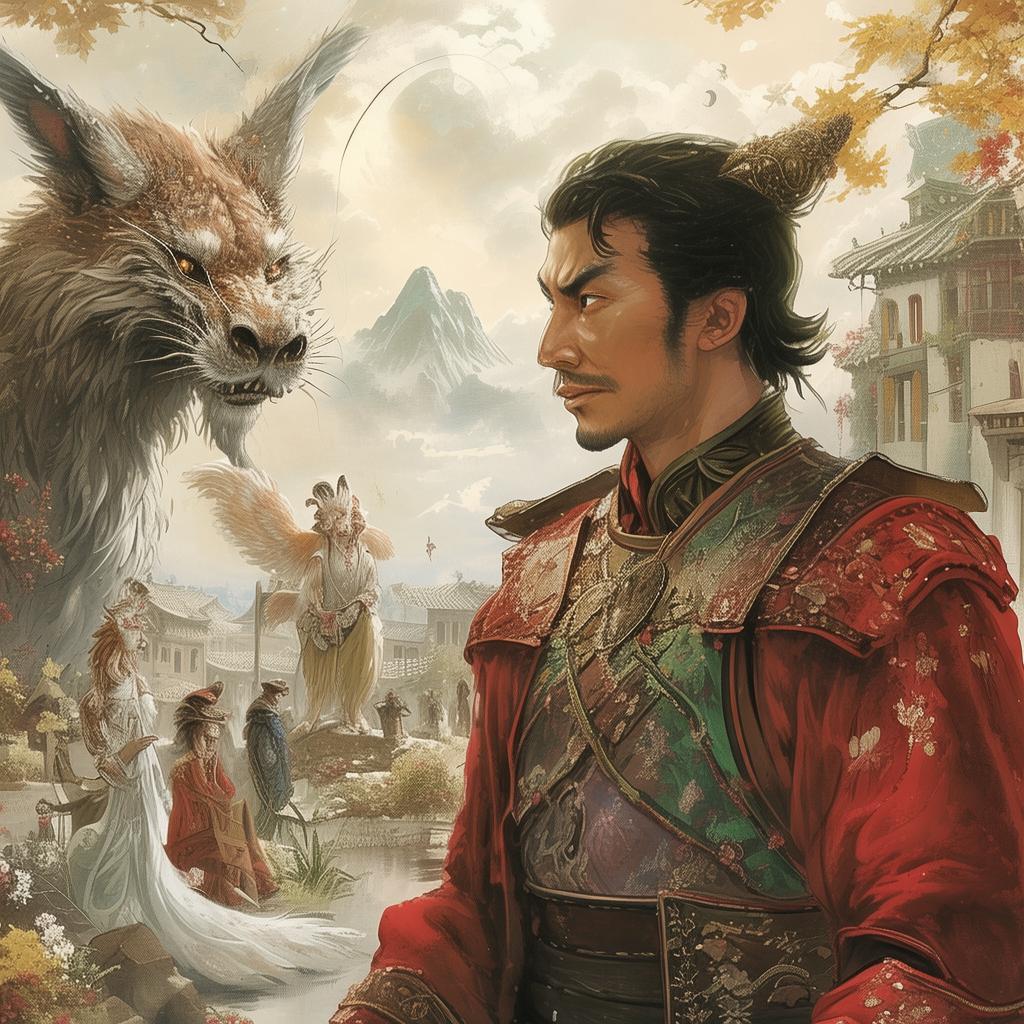Heaven's Pawn: The Rivalry of the Celestial Chessboard
In the ancient land of Tianxia, where the heavens were a tapestry of stars and the earth was a stage for celestial beings, there was a game played on the Celestial Chessboard. This was no ordinary game, but a game of life and death, of fate and destiny. It was a game that only the most powerful deities dared to play, a game that was said to decide the very balance of the cosmos.
The story begins in the kingdom of Jingzhou, where the young prince, Ming, was known for his wisdom and bravery. His father, the King of Jingzhou, was a mortal, but his lineage was steeped in a long tradition of celestial connections. It was said that one day, a celestial event would occur, and the kingdom would be forever changed.
One night, as the sky was painted with the hues of twilight, a strange event unfolded. The stars in the heavens began to shift, and a celestial message appeared, declaring that the Celestial Chessboard would be activated, and a game of great importance would commence. The winner of this game would be granted immense power, while the loser would face a fate worse than death.

The King of Jingzhou, recognizing the significance of the celestial message, knew that his son, Ming, was the chosen one to participate in this game. He gathered his advisors and the court astrologers, who foretold that Ming was destined to play a pivotal role in the cosmic order.
Ming, though young, accepted his fate with grace and determination. He was taught the ancient art of celestial chess by the most learned master in the land. The game was played on a board of pure crystal, where the pieces were stars and planets, and the moves were dictated by the very laws of the universe.
The game began with a move that left everyone in awe. Ming, with his untrained eyes, saw the celestial movements that others could not. He made a move that was both bold and strategic, setting the tone for the rest of the game. The other players, the deities of the heavens, were taken aback by the young mortal's prowess.
As the game progressed, the deities became increasingly envious of Ming's potential. They were aware that the celestial power he could wield was not to be underestimated. They began to plot against him, to turn the tide of the game in their favor.
Ming, however, was not without allies. The spirits of the earth, the creatures of the sky, and the winds of the cosmos were drawn to his cause. They whispered their support, guiding him through the intricate moves of the game.
The climax of the game was a moment of intense suspense. Ming found himself facing a celestial god, a being of immense power and cunning. The god, in a move that was both devious and brilliant, manipulated the stars to create a seemingly insurmountable advantage.
But Ming, with his mortal heart and celestial mind, saw through the god's deception. He made a move that was both unexpected and perfect, turning the tide of the game. The god, defeated, realized that the power of the celestial chessboard was not just about brute force but about wisdom and understanding.
The game ended with a victory for Ming, but the true victory was the realization that the cosmos was not to be controlled by any single being. The power of the Celestial Chessboard was a reminder that the balance of the universe was maintained by the collective will of its inhabitants.
Ming, now a symbol of hope and wisdom, returned to his kingdom as a hero. The people of Jingzhou celebrated his triumph, and the king, proud of his son's achievements, decreed that the Celestial Chessboard would be a symbol of the eternal connection between heaven and earth.
The story of Ming and the Celestial Chessboard became a legend, a tale that was told through generations. It was a story that taught the people of Tianxia that power was not to be sought for its own sake but to be used wisely, to maintain the harmony of the cosmos.
In the end, the game was not just a contest of wits and strength, but a testament to the enduring spirit of humanity and the boundless potential of the celestial realm. Ming's legacy lived on, a reminder that even in the vastness of the heavens, there was always a place for the heart of a mortal.
✨ Original Statement ✨
All articles published on this website (including but not limited to text, images, videos, and other content) are original or authorized for reposting and are protected by relevant laws. Without the explicit written permission of this website, no individual or organization may copy, modify, repost, or use the content for commercial purposes.
If you need to quote or cooperate, please contact this site for authorization. We reserve the right to pursue legal responsibility for any unauthorized use.
Hereby declared.









